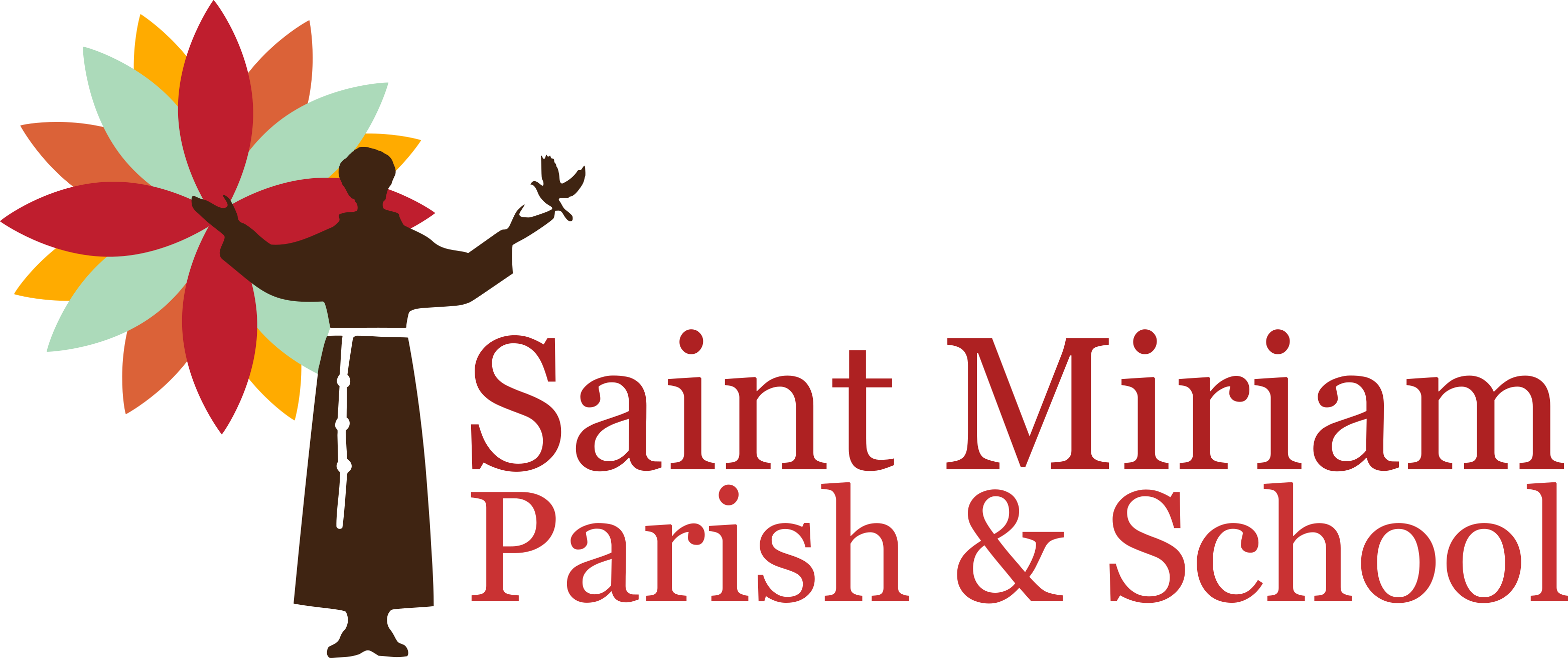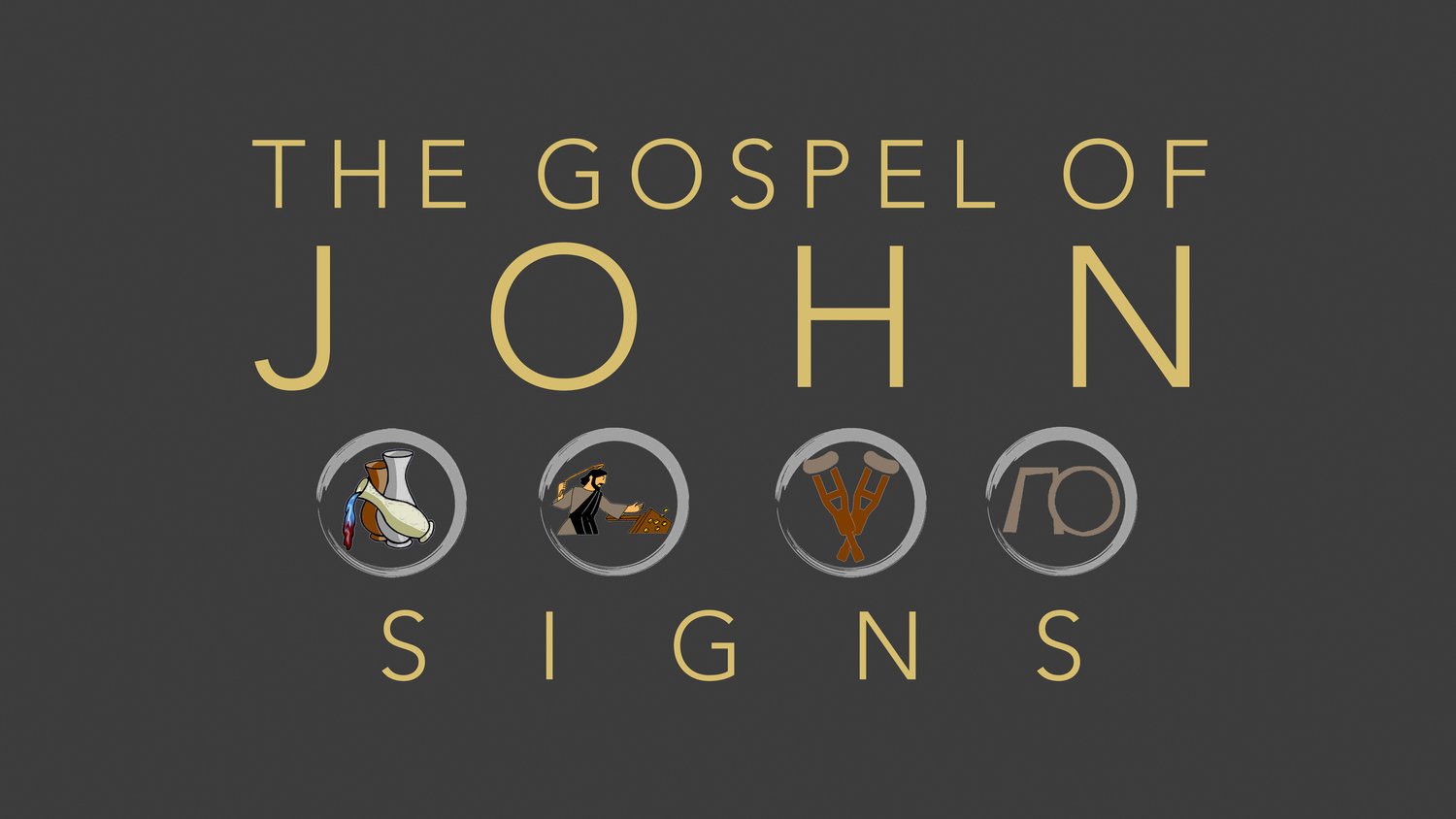Ok, I’m dating myself with lyrics to a song from the Seventies, but that Five Man Electrical Band hit always comes to mind when I talk about John’s Gospel. You see, John is often referred to as the Gospel of Signs. Instead of using the word “miracle,” John speaks of “signs” that Jesus performed. These signs speak of something wonderful that Jesus did. Yet John insists that when we go beyond the surface of what Jesus did —as amazing as that is— there is an even more amazing meaning, message that the miracle reveals. In other words, the “signs” are meant to point to a deeper meaning. They reveal something deeper about the mystery of Jesus and the reason for his coming.
There are seven signs in John’s Gospel. They are:
- Turning Water into Wine at the Wedding Feast of Cana
- Healing the Official’s Son
- Healing the Crippled Man
- Feeding the Five Thousand (which is the sign from this Sunday’s gospel).
- Walking on Water
- Healing the Blind Man
- Raising Lazarus from the Dead
Of course, John tells us that Jesus “performed many other signs in the presence of his disciples” which he didn’t record. But these he did record so that, meditating upon them, we may come to see the deeper message Jesus wanted to share through the miracles he performed. They weren’t, after all, just “wow” moments to entertain a crowd.
So, what might be some of the deeper meanings Jesus points to in his miracle (sign) of feeding the five thousand?
Well, the most obvious is that no man can take 5 barley loves and two fish and feed a “multitude.” But one filled with the power of God can. Jesus reveals his essential and unbreakable oneness with the Father, Abba, the Source of all that is. God’s power flows through Jesus for the life of the world.
Moreover, as Jesus himself will explain in the “discourse” that follows this sign, God knows our deepest hungers. God knows our most intimate, insistent longings. God knows the most profound cry of our hearts. And in Jesus, God comes to satisfy our hungers, our deepest needs in life. Jesus says, “I am the bread of life. Whoever comes to me will never be hungry and whoever believes in me will never be thirsty.”
Jesus is revealing that his words, his lessons, his miracles, his way of life are the food that, when digested satiate us. They are the way to be satisfied, the way to fullness of life, life in abundance. And that is why he invites us to “believe” in him! He isn’t saying that if we intellectually assent to the truth that he is the Son of God, both human and divine, that we will “get” eternal life for having believed with our minds the right dogma. He is saying that if we set our hearts on him, if we trust in him and in that trust commit ourselves to live the Way he marks out for us with the example of his own life and with his teachings, then we will find the answer to our hearts’ longings, the “food” that will fill us, the drink that will quench our deep down thirst.
This is why being a disciple of Jesus is so much more than “following the rules” and “fulfilling our Sunday obligation.” How many people stridently follow all the rules and fulfill every obligation, and yet remain unsatisfied? They even become spiritual accountants who keep very accurate books on all the rules they’ve kept (and all the rules that others have broken). They become bitter and self-righteous or scrupulous and fearful. No Good News there.
No, Jesus is talking about something much deeper: he is announcing that if we want to find the answer to our deepest longing, if we truly want to come to the fullness of life for which we were created, then listening to him, learning from him, imitating him and putting into practice everything he taught is the Way, and the Truth to the Life we seek.
And, because we are so very hungry, so needy; because on our own we can’t live the Jesus Way, Jesus literally becomes for us the Bread of Life in the Eucharist. He feeds us with his Life so that we can, in fact, come to live his Way and Truth. After having loved humanity to the full on the Cross, Jesus feeds us with that same love in the Eucharist so that we can know we are loved to the full and we can begin to love as we are loved.
That’s why we deny no one Holy Communion here at Saint Miriam. Can you imagine Jesus ever saying to a hungry man, a thirsty woman, “No. You can’t join us at table. Go straighten out your life first. Go, stop sinning. Stop falling. Stop making mistakes. Be perfectly pure and then come back and you will be worthy, you will deserve the reward of Communion.” Of course not! It is the exact opposite of how Jesus lived and loved; is is the exact opposite of his Way and Truth. It is, in fact, the anti-gospel.
According to the way of Jesus, all are invited to the table because all are hungering and thirsting for love, for life, for meaning, for purpose, for acceptance. And anyone who bothers to come to Eucharist knows that Jesus has the “something” they need and want. And so, they are invited to come forward and receive! It is in the very receiving of the free gift of God’s love in the Eucharist that a person comes to know him/herself known, accepted and loved by God and by God’s people who join them in the Feast. And the deep knowing of such love is what brings about any change, and transformation that is needed.
So, there you have it! Quite a lot packed into the sign of the feeding of Five Thousand. It’s a sign that points to a God who knows how hungry we are, and who is even hungrier to feed us with Love Everlasting. Then we’re all satisfied. For ever and ever. Amen.
Peace and every good,
Father Liam

